- europages
- >
- COMPANIES - SUPPLIERS - SERVICE PROVIDERS
- >
- titanium precision tubes
Results for
Titanium precision tubes - Import export
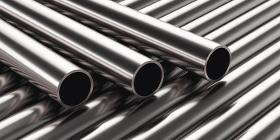
AMETEK SPECIALTY METAL PRODUCTS
United States
Ti 6Al/4V (Titanium Grade 5) is the most widely used of all the alpha-beta titanium alloys accounting for more than 50% of total titanium usuage. It is typically used in the annealed condition, at service temperatures through 400°C (750°F). Ti 6Al/4V is welded with matching or with ELI filler wire. Ti 6Al/4V is significantly stronger than commercially pure titanium while having the same stiffness and thermal properties excluding thermal conductivity, which is about 60% lower in Grade 5 Ti than in CP Ti. Amongst its many advantages, it is heat treatable. This grade is an excellent combination of strength, corrosion resistance, weld and fabricability. In consequence, its uses are numerous such as for military aircraft or turbines. It is also used in surgical implants. Generally, it is used in applications up to 400°C to improve ductility and toughness in cold-worked condition. Please note that we have a minimum order value of £10,000.
Request for a quote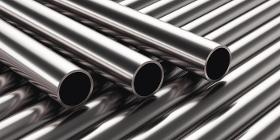
AMETEK SPECIALTY METAL PRODUCTS
United States
Ti 3AI/2.5V (Titanium Grade 9) alloy is a near alpha, alpha-beta alloy, sometimes referred to as “half-6-4.” It offers 20 to 50% higher tensile strength than the commercially pure titanium at room and elevated temperatures. It is much more amenable to cold working than Ti 6AI/4V alloy and can be cold worked 75 to 85% to result in moderately high strength and good ductility. Furthermore, it is weldable as the commercially pure grades and has excellent resistance to torsion and corrosion.Ti 6Al/4V is significantly stronger than commercially pure titanium while having the same stiffness and thermal properties excluding thermal conductivity, which is about 60% lower in Grade 5 Ti than in CP Ti. Amongst its many advantages, it is heat treatable. Please note that we have a minimum order value of £10,000.
Request for a quote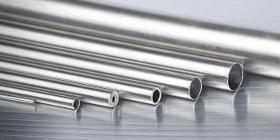
AMETEK SPECIALTY METAL PRODUCTS
United States
Commercially Pure (CP) titanium is an unalloyed titanium grade with a close-packed hexagonal (CPH) crystal structure at room temperature known as alpha phase structure. It has good formability, weldability, ductility, and corrosion resistance combined with moderate strength. Grade 2 titanium has slightly increased higher mechanical properties when compared to Grade 1. It is used principally in aerospace, automotive, chemical plants, marine environments, architecture structures & medical applications. Please note that we have a minimum order value of £10,000.
Request for a quote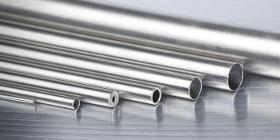
AMETEK SPECIALTY METAL PRODUCTS
United States
Because of its strength, unique density and corrosion resistance, titanium has found applications in many industries. For high quality tubing products, it’s often a better substance to use than competing materials like stainless steels or super alloys. Titanium tubes are light weight and exceptionally corrosion and heat resistantThe density of titanium is about 60 per cent of that of steel- or nickel-based alloys giving significant weight savings in aerospace structures. The tensile strength is better than that of austenitic or ferritic stainless steels. Titanium is exceptionally corrosion resistant and exceeds the resistance of stainless steels in most environments. The metal is non-magnetic too, and has good heat transfer properties, with a melting point higher than steel alloys. Titanium is easily worked. Please note that we have a minimum order value of £10,000.
Request for a quote
AMETEK SPECIALTY METAL PRODUCTS
United States
Fine Tubes has a long and proud heritage of manufacturing tubes that operate in hostile environments - where performance is everything and maintenance is impossible. High-Quality Tubes For The Solar Orbiter Our precision seamless titanium tubes were selected to operate in the Chemical Propulsion System for the Solar Orbiter mission. The highly engineered tubes exceeded the demands for quality and cleanliness specified for this mission-critical application. Please note that we have a minimum order value of £10,000.
Request for a quoteDo you sell or make similar products?
Sign up to europages and have your products listed

TITANIUM ENGINEERS LTD
United Kingdom
Titanium 6Al-4V (Grade 5) in Bars and Machined Components Advantages of Titanium 6Al-4V: • Good corrosion resistance in seawater applications • Low density/ high strength-to-weight ratio • Low modulus of elasticity • Low thermal expansion • Non-magnetic • Good fatigue resistance • Good high temperature mechanical properties Call us today for a quotation on +44(0)1675 464200 or email contactus-UK@titaniumengineers.com

TITANIUM ENGINEERS LTD
United Kingdom
Titanium Beta-C (Grade 19) Bars and Machined Components Some advantages of Titanium Beta-C: • Excellent corrosion resistance • Can be heat treated to yield strength levels above 1170MPa (170 ksi) • Stronger than titanium alloys 6Al-4V and 6Al-2Sn-4Zr-6Mo • Conforms to NACE MR 0175/ISO 15156 • Excellent fatigue resistance • High strength-to-weight ratio Call us today for a quotation on +44(0)1675 464200 or email contactus-UK@titaniumengineers.com

TITANIUM ENGINEERS LTD
United Kingdom
Titanium 6Al-2Sn-4Zr-6Mo (6246) Bar and Machined Components Advantages of Titanium 6246: • Conforms to NACE MR 0175/ISO 15156 • Superior corrosion resistance in oilfield environments • Low density/ very high strength-to-weight ratio • Low modulus of elasticity • Low thermal expansion • Non-magnetic • Good fatigue resistance • Can be heat treated to higher strength levels than Ti 6Al-4V (minimum 1040 MPa / 150 ksi) • Good high temperature mechanical properties Call us today for a quotation on +44(0)1675 464200 or email contactus-UK@titaniumengineers.com
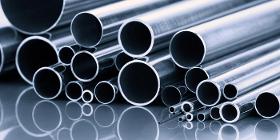
AMETEK SPECIALTY METAL PRODUCTS
United States
Surgical Implant 316L is a double melted stainless steel, regarded as a medical grade, this stainless steel is melted to achieve high levels of purity and cleanliness. It has excellent resistance to both general and intergranular corrosion, and pitting and crevice corrosion. The double melting allows for superior surface finish. Surgical implant 316L Stainless Steel is our most commonly sold medical stainless steel. Beyond removing impurities, this process, in combination with the unique nickel and chromium content of 316, tends to facilitate the formation of the surface chromium oxide layer that makes stainless steel corrosion resistant. There is some belief that surgical implant 316L forms a more substantial surface layer, and that this plays a strong role in protecting the host body from reactions to the nickel content of the material. Please note that we have a minimum order value of £10,000.
Request for a quote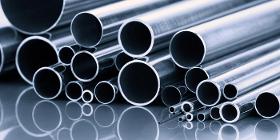
AMETEK SPECIALTY METAL PRODUCTS
United States
316LN (UNS S31653) is a low-carbon, nitrogen-enhanced version of Type 316 molybdenum-bearing austenitic stainless steel. The Type 316 alloys are more resistant to general corrosion and pitting/crevice corrosion than the conventional chromium-nickel austenitic stainless steels such as Type 304. They also offer higher creep, stress-rupture and tensile strength at elevated temperature. The nitrogen in Type 316LN adds additional resistance to sensitization in some circumstances. The nitrogen content of Type 316LN stainless steel also provides some solid solution hardening, raising its minimum specified yield strength compared to Type 316L stainless steel. Like Types 316 and 316L, the Type 316LN alloy also offers good resistance to general corrosion and pitting/crevice corrosion. Please note that we have a minimum order value of £10,000.
Request for a quote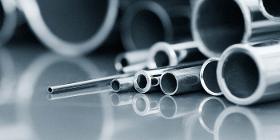
AMETEK SPECIALTY METAL PRODUCTS
United States
316Ti (UNS S31635) is a titanium stabilised version of 316 molybdenum-bearing austenitic stainless steel. The 316 alloys are more resistant to general corrosion and pitting/crevice corrosion than the conventional chromium-nickel austenitic stainless steels such as 304. They also offer higher creep, stress-rupture and tensile strength at elevated temperature. High carbon Alloy 316 stainless steel can be susceptible to sensitisation, the formation of grain boundary chromium carbides at temperatures between approximately 900 and 1500°F (425 to 815°C) which can result in intergranular corrosion. Resistance to sensitisation is achieved in Alloy 316Ti with titanium additions to stabilise the structure against chromium carbide precipitation, which is the source of sensitisation. This stabilisation is achieved by an intermediate temperature heat treatment, during which the titanium reacts with carbon to form titanium carbides. Please note that we have a minimum order value of £10,000.
Request for a quoteResults for
Titanium precision tubes - Import exportNumber of results
12 ProductsCountries
Company type